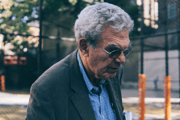New study reveals possible link between daytime naps and developing dementia — here are all the details
By
- Replies 7
A number of studies have previously claimed that sleep helps protect our brains from damage and disease.
However, new research published by academics from renowned American universities Harvard University and University of California, San Francisco, revealed that taking naps during the day could possibly be an early sign of dementia among elderly people.
It was said that a probable "vicious cycle" between afternoon snoozes and the disease was observed in hundreds of seniors — aged 80 and above — who were monitored for over a decade.
The results suggested that seniors who have taken some daytime snoozes at least once a day were 40 per cent more susceptible to developing Alzheimer's disease — the most common type of dementia.
Additionally, the length of the nap also impacts the vulnerability of seniors to dementia, with seniors sleeping for over an hour each day being more at risk compared to those who only doze off for a shorter period.
Taking daytime naps may be an early sign of dementia, according to new study. Credit: Shutterstock/Dragon Images.
The researchers said that the phenomena may have been linked to previous studies suggesting that people who suffer from dementia nap for longer periods of time once they develop the disorder.
In fact, another study published in Alzheimer’s and Dementia: The Journal of the Alzheimer’s Association, backed this claim, stating that the amount of time seniors spend napping increases as they develop Alzheimer's disease.
It was reported that on average, older people without cognitive impairment increase their napping time by 11 minutes per year.
However, seniors who have a mild diagnosis of Alzheimer's disease double the additional time spent for daytime snoozes to 24 minutes per year, while those who are diagnosed with the disease increase their sleeping time to 68 minutes per year.
The reason behind this phenomenon is the fact that Alzheimer's sufferers have fewer "wake-promoting" neurons, which prompts them to take more time sleeping.
The decline of the “wake-promoting” neurons was said to be linked with the abnormal protein build-up that occurs in the brain of someone who’s suffering from the disease.
Individuals suffering from Alzheimer’s disease have fewer “wake-promoting” neurons, which cause them to take more time sleeping. Credit: SeniorsAtHome.org.
Lead researcher Dr Yue Leng emphasised, that there was not enough evidence to support the claim, arguing that the "role of daytime napping is important itself and is independent of nighttime sleep".
"But excessive daytime napping might be a signal of accelerated aging or cognitive aging process," she said.
The expert also suggested that future studies should investigate the possibility of slowing down cognitive decline among seniors by interrupting their naps.
Well, there you have it, folks! While there are no known cures to dementia, we suggest checking out this article where a neurologist reveals 8 hacks to avoid the disease.
We also previously shared an article that suggests the best diet for keeping the brain healthy.






